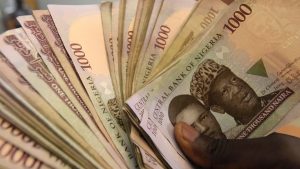
In a concerning forecast by the International Monetary Fund (IMF), Nigeria’s foreign reserve is expected to see a significant reduction, falling to $24 billion in the year 2024.
This prediction was detailed in the IMF’s latest country report for Nigeria, signalling potential challenges ahead for Africa’s largest economy.
As of February 8, 2024, data from the Central Bank of Nigeria (CBN) positioned the country’s foreign reserves at $33.12 billion, indicating a substantial drop is on the horizon according to the international financial institution’s projections.
The IMF noted that first half of 2023 witnessed a surplus in the current account, yet there was a notable decline in reserves.
This downturn has been attributed to a decrease in hydrocarbon exports, largely due to rampant theft and a lack of investment in essential upstream infrastructure.
Additionally, profit repatriation from the oil sector has seen a downturn, albeit slightly offsetting the adverse effects on the current account.
Amid these dynamics, Foreign Direct Investment (FDI) in the country remains low, while there has been an uptick in portfolio outflows, including equity and Eurobond repayments as well as repatriations.
The IMF anticipates a challenging period through 2024–25 for Nigeria’s financial account, exacerbated by an absence of new Eurobond issuances, significant repayments of existing funds and Eurobonds totalling $3.5 billion, and continued portfolio outflows.
Despite projecting a current account surplus, the officially reported reserves are expected to diminish to $24 billion in 2024, with a hopeful recovery to $38 billion by 2028 as portfolio inflows are forecasted to pick up once again.
The report read:“Through 2024–25, the financial account is likely to deteriorate, with no projected issuance of Eurobonds, large Fund and Eurobond repayments of $3.5 billion, and portfolio outflows.
“Hence, despite a current account surplus, officially reported reserves are projected to decline to $24 billion in 2024 before increasing again to $38 billion in 2028 as portfolio inflows resume.”
According to the IMF, the CBN reported that the 30-day average of gross international reserves (GIR) had dwindled to $33 billion by October 2023, marking a decrease of nearly $4 billion from the end of 2022. This level of reserves provides for six months of import cover and meets 83% of the IMF’s Assessing Reserve Adequacy (ARA) metric.
However, when adhering to the IMF’s definition of GIR, which considers $8 billion in securities as pledged collateral and not readily accessible, the GIR adjusts to a lower figure of $25 billion at the end of October 2023.
Also, the IMF highlighted the importance of the Nigerian authorities’ ability to manage the country’s external financial obligations effectively.
The IMF’s projections are based on the assumption that Nigeria will successfully roll over all maturing forwards and swaps, underscoring the significance of adeptly navigating the external financial landscape to secure and expand Nigeria’s foreign reserves in the coming years.
The struggle to attract foreign investment has become more pronounced, with Nigeria witnessing a marked decline in foreign capital inflow. Recent data reveals that the country managed to attract only $654.65 million in foreign capital during the third quarter of 2023. Notably, Foreign Direct Investment (FDI) constituted a mere 0.091% of the total capital imports in this period, highlighting the challenges in drawing substantial foreign investment.
In response to these challenges, the Central Bank of Nigeria (CBN) has taken steps to address the backlog of foreign exchange forwards, with an outstanding balance of $2.2 billion yet to be cleared.
In a positive development, CBN Governor Yemi Cardoso recently announced that the foreign exchange market has seen an infusion of over $1 billion in liquidity, attributing this boost to the recent reforms undertaken by the apex bank. This surge in FX market liquidity marks a significant shift and is a hopeful sign of gradual improvement in the forex landscape as foreign portfolio investors show interest in the country.
The ongoing reforms in both the forex market and the oil sector are critical to enhancing Nigeria’s appeal to foreign investors and strengthening the inflow of foreign capital. These reforms are also vital for bolstering the country’s foreign reserves, which are essential for stabilizing the Nigerian economy and ensuring its growth trajectory.








